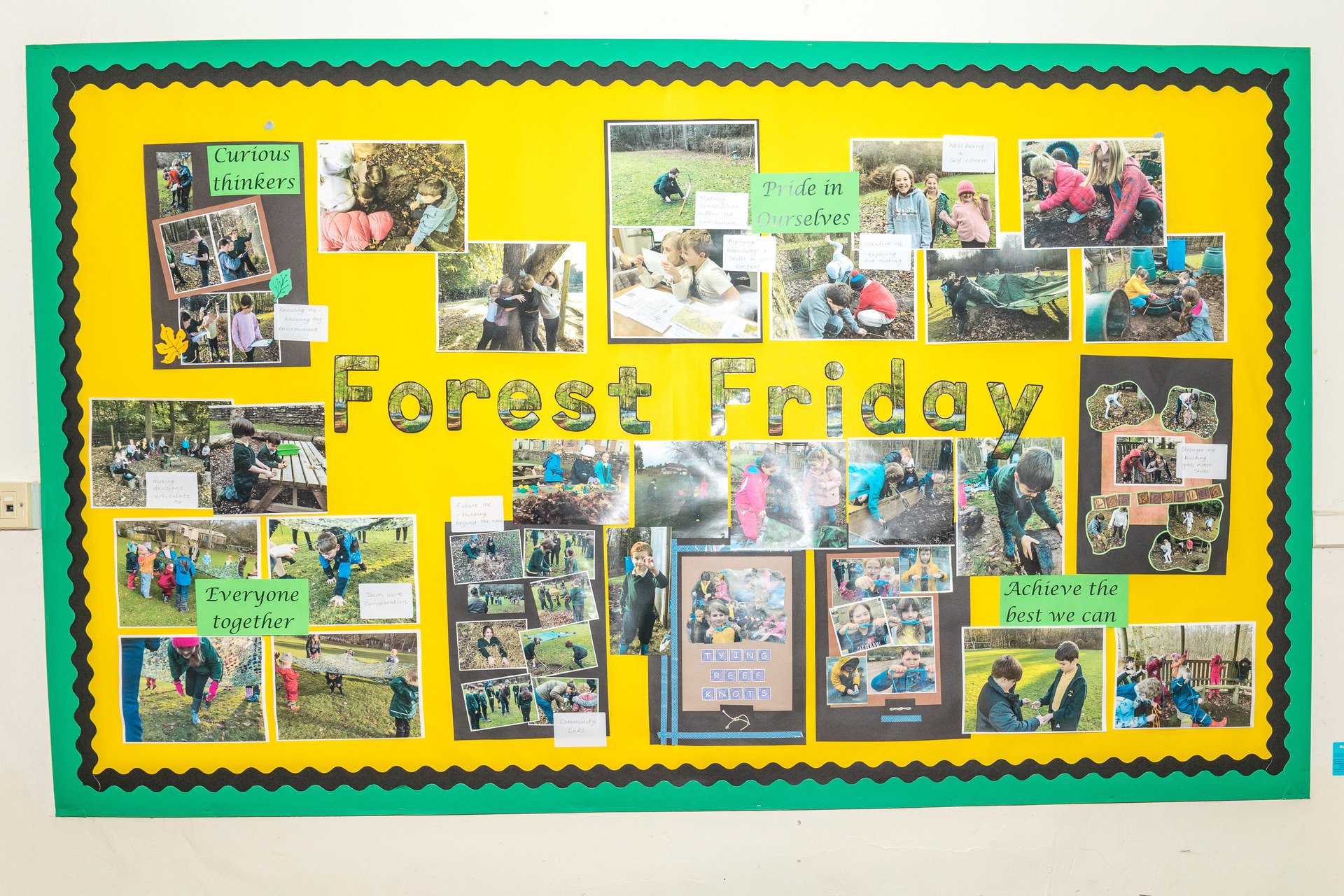Forest School
We are very proud to be able to offer regular forest classroom sessions for all children at Parkend. We have established 'Forest Friday' as we value how important it is for our children to have access to outdoor learning and exploration. We use our beautiful setting whenever we can to make links throughout our learning.
Key Features of Forest School
- The use of a woodland setting that is framed by strict safety routines and established boundaries that allows the flexibility and freedom for child-initiated learning and other innovative approaches to learning to take place in a low-risk environment.
- A high adult to pupil ratio allows for children to undertake tasks and play activities that challenge them but do not put them at undue risk of harm.
- Learning can be linked to the national curriculum and foundation stage objectives whilst setting those objectives in a different context, and it is not focused just on the natural environment.
- The freedom to explore using multiple senses is fundamental for encouraging creative, diverse and imaginative play.
- Regular contact for the children over a significant period of time at least one morning, afternoon or day per week or fortnight.
Impact of Forest School
- Confidence
This is characterised by self-confidence and self-belief that comes from the children having the freedom, time and space, to learn, grown and demonstrate independence. - Social skills
The children demonstrate an increased awareness of the consequences of their actions on other people, peers and adults, and acquire a better ability to work co-operatively with others. - Language and communication
The children develop more sophisticated uses of both written and spoken language prompted by their visual and sensory experiences at Forest School. - Motivation and concentration
This is characterised by a keenness to participate in exploratory learning and play activities as well as the ability to focus on specific tasks for extended periods of time. - Physical skills
The children develop physical stamina and their gross motor skills through free and easy movement round the Forest School site. They develop fine motor skills by making objects and structures. - Knowledge and understanding
Increased respect for the environment is developed as well as an interest in their natural surroundings. Observational improvements are noted as children start to identify flora and fauna. - New perspectives
The teachers and practitioners gain a new perspective and understanding of the children as they observe them in a very different setting and are able to identify their individual learning styles. - Ripple effects beyond Forest School
The children bring their experiences home and ask their parents to take them outdoors at the weekend or in the school holidays. Parent’s interest and attitude towards Forest School change as they see the impacts on their children.





























